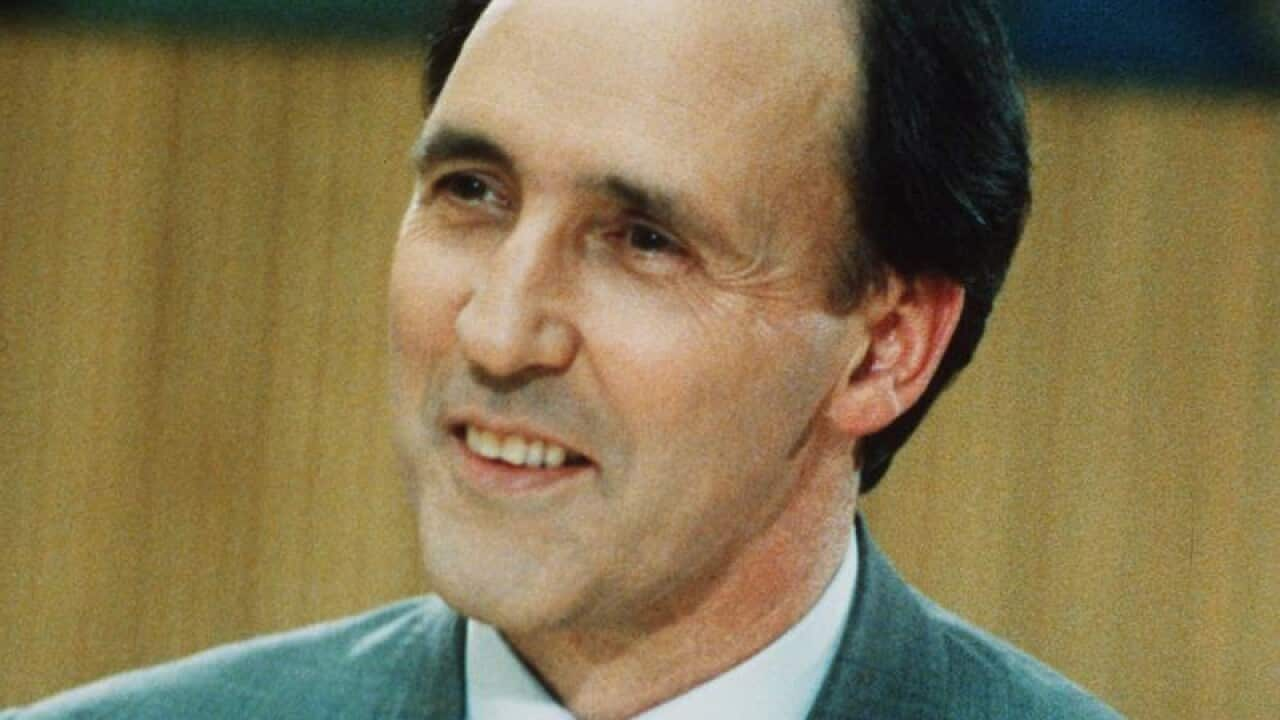The community of Redfern has welcomed the news that the ‘40,000 years’ mural will be given new life with the help of original artist Avril Quaill, art students from the Eora College Sydney TAFE, a team of conservation experts with experience in public art projects, and three Aboriginal artists yet to be announced.
Nathan Moran, CEO of Metropolitan Local Aboriginal Council told NITV News at the Mural Conservation Launch at the Redfern Community Centre on Wednesday it was “an honour and privilege to be part of an awesome project”. The new mural will faithfully reproduce the original design.
The new mural will faithfully reproduce the original design.

Redfern Station Community Group member Fiona Lanigan (L), Architect Peter Lonergan, mural artist Carol Ruff and local Elder Aunty Millie Ingram (R). Source: Supplied/Urban Growth/Ryan Kennedy
Carol Ruff, the original mural artist, coordinated the feasibility study for the Redfern Station Community Group (RSCG), the group responsible for obtaining the various grants to fund the mural reproduction and seeing the works through.
For this project, the Redfern Station Community Group have enlisted the help of Cracknell and Lonergan Architects. The team also includes Peter and Richard Lucas, whose father, Bill Lucas that has had a long history of more than 30 years working with the Redfern community. He designed the Murwina Childcare building on the block following a part donation by Michael Jackson when he visited Everleigh Street in 1988. “There is a technical team that will be doing most of the lead-up work. The project is relying on Indigenous and non-Indigenous co-operation. Even though the architects’ technical team is not of Indigenous descent” they have a long history of connection with the community, architect Peter Lonergan told NITV News.
“There is a technical team that will be doing most of the lead-up work. The project is relying on Indigenous and non-Indigenous co-operation. Even though the architects’ technical team is not of Indigenous descent” they have a long history of connection with the community, architect Peter Lonergan told NITV News.

Carol Ruff, the mural's original artist. Source: Supplied
“Artists working on the new mural will be assisted by modern technology,” Mr Lonergan explained.
“[I] will project the old images, taken from photographs from that time, onto the Lawson Bridge wall, to guide the artists,” he added.
The Lucas brothers have worked on similar projects, like Roy Kennedy’s ‘mission boy dreams’ which is on the side of the Wyanga building in Cope Street, Redfern.

Source: Supplied/Urban Growth/Ryan Kennedy
The mural’s history
Carol Ruff, the artist who coordinated the original mural team in 1983 and raised the funds at the time, created the design based on a study that artist Tracey Moffatt had produced for South Sydney Council, as well as community input.
“We had an empty shop down the road, and we drew the design up, 1/10th of a scale, for the 300 feet wall," Ms Ruff recalled.
“The design was on public display for quite a while, while a number of local Indigenous community made input and feedback: local artists, people from the local pub, people connected to the 1983 [Redfern] All Blacks team, and the Black Lace Band,” she said.
The original artistic team also included renowned Indigenous artists and designers Tracey Moffatt, Avril Quaill, Kristina Nehm, Joe Geia, Charlie Aarons and Emu Nugent. They were supported by Indigenous art students from the Sydney TAFE Eora College and others.
More than 15 people were on the team, but only 5 could work at any one time. A black and white photo of the winning Redfern All Blacks team of 1979, which featured in the original mural design, is presently being analysed. The Redfern Station Community Group is consulting to ensure all those photographed back then could still be included in the new mural.
A black and white photo of the winning Redfern All Blacks team of 1979, which featured in the original mural design, is presently being analysed. The Redfern Station Community Group is consulting to ensure all those photographed back then could still be included in the new mural.

Redfern All Blacks Team 1983. Source: NITV News
The painting start date will be announced soon. Despite recent anthropological discoveries, there are no plans to change the ‘40,000’ into ‘60,000 years’ on the revamped design.
MORE REDFERN STORIES

Paul Keating's Redfern Speech, 25 years on




